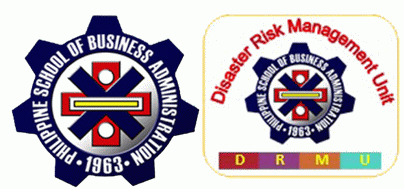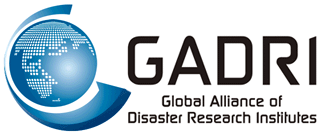- Home
- About
- Events
- Members
- About Members
- Member Institutes
- Algeria
- Argentina
- Australia
- Austria
- Bangladesh
- Brazil
- Bulgaria
- Canada
- China, People's Republic of
- Colombia
- Ecuador
- Egypt
- European Commission
- France
- Germany
- Ghana
- Hong Kong (People's Republic of China)
- India
- Indonesia
- Iran (Islamic Republic of)
- Israel
- Italy
- Japan
- Korea, Republic of
- Lao PDR
- Malaysia
- Mexico
- Morocco
- Nepal
- New Zealand
- Oman
- Phillippines
- Slovakia
- South Africa
- Sri Lanka
- Sudan
- Sweden
- Switzerland
- Chinese Taipei
- Thailand
- Turkey
- United Kingdom
- United States
- Vietnam
- Zimbabwe
- Membership
- Activities
- Resources
- GADRI Archives
 |
Partnerships in Environmental Management for Seas of East AsiaQuezon City |
|
Outline PEMSEA carries out this mandate through these operating mechanisms: East Asian Seas (EAS) Congress Held every three years, the Congress serves as an intellectual melting pot of the various stakeholders, partners and collaborators, and is an opportunity to share knowledge and monitor the progress of the SDS-SEA programmes and projects. Among the various events of the Congress are a Ministerial Forum and an International Conference. The Ministerial Forum is a venue for providing policy directions and commitments related to SDS-SEA implementation, while the International Conference conducts knowledge exchange activities and discussions targeted at specific sectors' issues, while promoting priority programmes and various mechanisms and encouraging corporateresponsibility the business community. [detail] --> |
|
 |
Disaster Risk Management Unit, Graduate School of Business
|
|
Outline Philippine School of Business Administration (PSBA) was incorporated as a full-fledged school in 1966. It is duly recognized by the Philippine Commission on Higher Education (CHED) and included in World Higher Education Database (WHED). It is also part of United Nations Educational, Scientific and Cultural Organization's (UNESCO) and the International Association of Universities (IAU) so called IAU/UNESCO List.
The main rationale of the School is to help meet the country's management requirements for more advanced and sophisticated industrial and commercial life and government responsibilities as well. PSBA started its Research Arm for Disaster Risk Management (DRM) researches and projects in 2001. Currently, to fulfill the country's demand for DRM formal education, PSBA-Manila has launched the Master of Business Administration (MBA) specialization in Disaster Risk Management (DRM) program in first semester of Academic Year 2017-2018 being the first Higher Education Institution (HEI) to offer a formal DRM education in the Philippines. Researches on Disaster Risk in The Philippine School of Business Administration (PSBA) started in 2001, when Dr. Teodoro Santos and Prof. Harry Lorenzo along with Dr. Teodorico Molina approved the proposal of Dr. Tabassam Raza, while taking up his Doctorate in Business Administration, for his dissertation that was focused towards Disaster Risk Management (DRM). The pilot research entitled "Strategic Model: Conceptualization and Implementation of a Total Disaster Risk Management: Cherry Hills Tragedy, Antipolo City", was published on 2002 as a first of its kind of researches on disasters in the Philippines. In 2003, the DRM Unit was founded under the Graduate School Research Center of PSBA where Dr. Raza was appointed Special Associate for the DRM and Information Technology (IT) Researches and Projects for PSBA. From here on, researches on DRM with focus on Business Continuity were done under the name of the School. [detail] --> |
|
 |
National Hydraulic Research Center, National Engineering Center, University of the Philippines at DilimanDiliman, Quezon City |
| Outline The National Hydraulic Research Center (NHRC) was established in 1973 as a unit of the University of the Philippines with the aim of creating a R & D center within an academic environment to conduct research and provide technical advice on various problems of water resources development and management, hydrology, hydraulic and coastal engineering, fluid mechanics, and other related fields. Its creation in the 1970's was very timely since the national government then started undertaking several water resources projects which required the technical inputs provided by both local and international experts in the field of water resources. Research Achievements and Challenges: In almost 40 years of its existence as a unit under the umbrella of the U.P. College of Engineering and the National Engineering Center, NHRC has developed and served as the national center of water-resources expertise, and provided the support organization and physical facilities for conducting the necessary physical and mathematical modeling research and producing technical output and advice in water resources engineering and management needed by government and the private sector. The outputs and activities of NHRC are in the forms of improved designs and plans of hydraulic structures (developed either by physical or mathematical modeling), engineering application software, technical training and transfer of technology to clients' personnel, technical analysis and advice on particular problems, publications, lectures/seminars/conferences, and consultations and meetings with various concerned sectors in the water resources field. [detail] --> |
|


